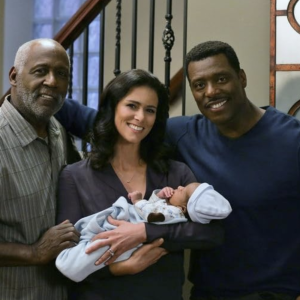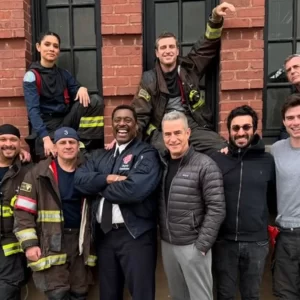When Marvel and the Chicago P.D. universe collide in fan conversation, it’s usually metaphorical. But in a surprising twist of entertainment synergy, recent social buzz suggests that Marvel’s formula for character redemption and spotlight arcs might be exactly what Chicago P.D. needs—specifically for one underutilized member of the Intelligence Unit: Dante Torres.

Introduced in Season 10 as a fresh, morally complex addition to Voight’s team, Torres had all the ingredients for a breakout character—gritty backstory, unique emotional layers, and a natural outsider dynamic. But by the time Season 12 rolled around, fans noticed a disappointing pattern: Torres was often relegated to the background, overshadowed by dominant arcs featuring Upton, Ruzek, or Burgess. What makes Marvel’s storytelling strategy stand out is its willingness to take a secondary or even overlooked character and elevate them through personal stakes, backstory development, and a redemptive arc. Wanda wasn’t always “the Scarlet Witch” in the spotlight. Sam Wilson took years before becoming Captain America. Even Clint Barton, often the quietest Avenger, had a powerful emotional arc in Hawkeye that explored grief, fatherhood, and legacy.
Yet, over time, the show failed to follow through. Torres was often seen in group shots or minor operations, but rarely did we get a deeper exploration into his life, trauma, or motivations. His character became a sidekick, instead of the multi-dimensional lead he has the potential to be. For a franchise like Chicago P.D., which thrives on morally gray storytelling and character evolution, this is a huge missed opportunity. Season 12 is already balancing big changes: Upton’s potential exit, Ruzek and Burgess rebuilding their family, and Voight reflecting on his legacy. This shifting landscape is the perfect moment to elevate a younger character into the narrative spotlight.

And let’s be honest—viewers crave something new. Torres offers a way to tell stories that reflect modern policing, the complexities of identity, and what it means to come from a background that’s often criminalized. He represents the next generation of Intelligence, and that story deserves to be told. Social media is filled with fans pointing out Torres’ absence from key storylines. Reddit threads, X (formerly Twitter) posts, and fan forums are begging for development beyond “quiet brooding guy with a badge.” Some have even created Marvel-style fan edits of Torres, comparing him to characters like Winter Soldier or Moon Knight—morally gray, mysterious, and capable of greatness.
Beyond storytelling strategy, there’s another reason a Torres arc matters: representation. As one of the few Latino characters in the One Chicago universe, Torres carries a cultural and narrative weight that shouldn’t be ignored. Exploring his heritage, values, and lived experiences could resonate with a wide audience and add real-world depth to the show. Much like Marvel’s success with expanding the universe to include more diverse heroes, Chicago P.D. has an opportunity to lead the way among police dramas by crafting a Torres-centered arc that’s authentic and compelling.
Marvel proved that no character is too minor to be major. Chicago P.D. needs to take that same risk—and the payoff could be huge. Torres isn’t just “the new guy” anymore. He’s earned his place. Now it’s time for the writers to give him the space, stakes, and emotional arcs that will cement him as a core pillar of the show’s next chapter. With Upton possibly departing and Voight aging into a more reflective role, there’s a leadership vacuum just waiting to be filled. And if Intelligence needs a future, Dante Torres just might be it.





